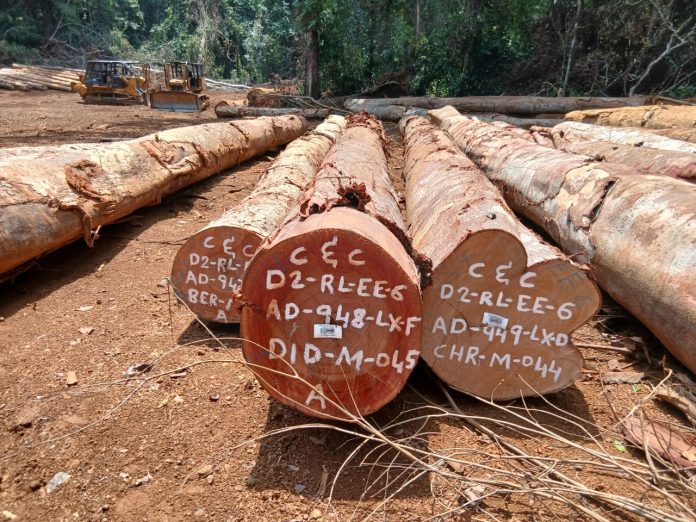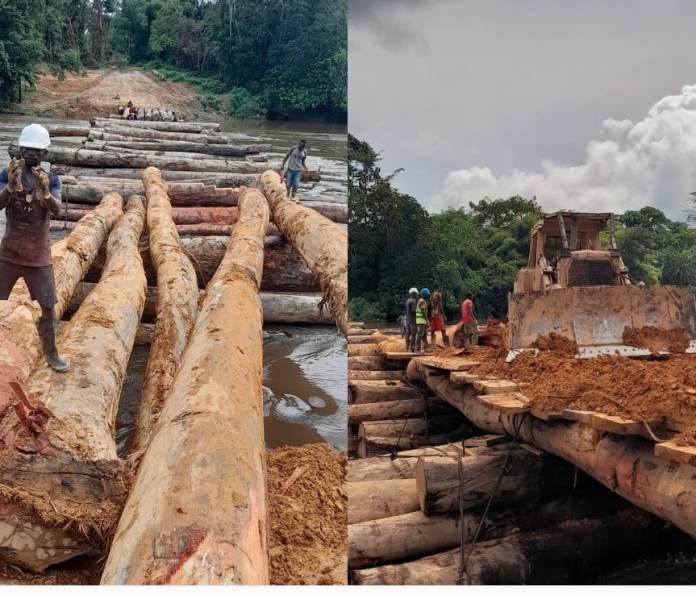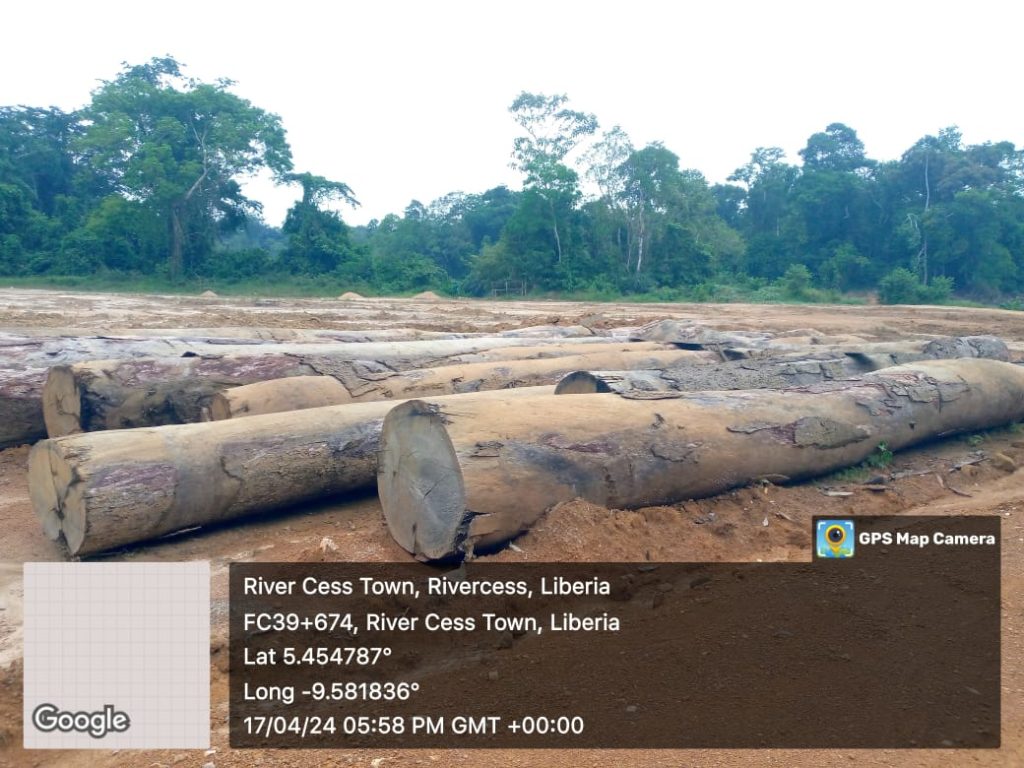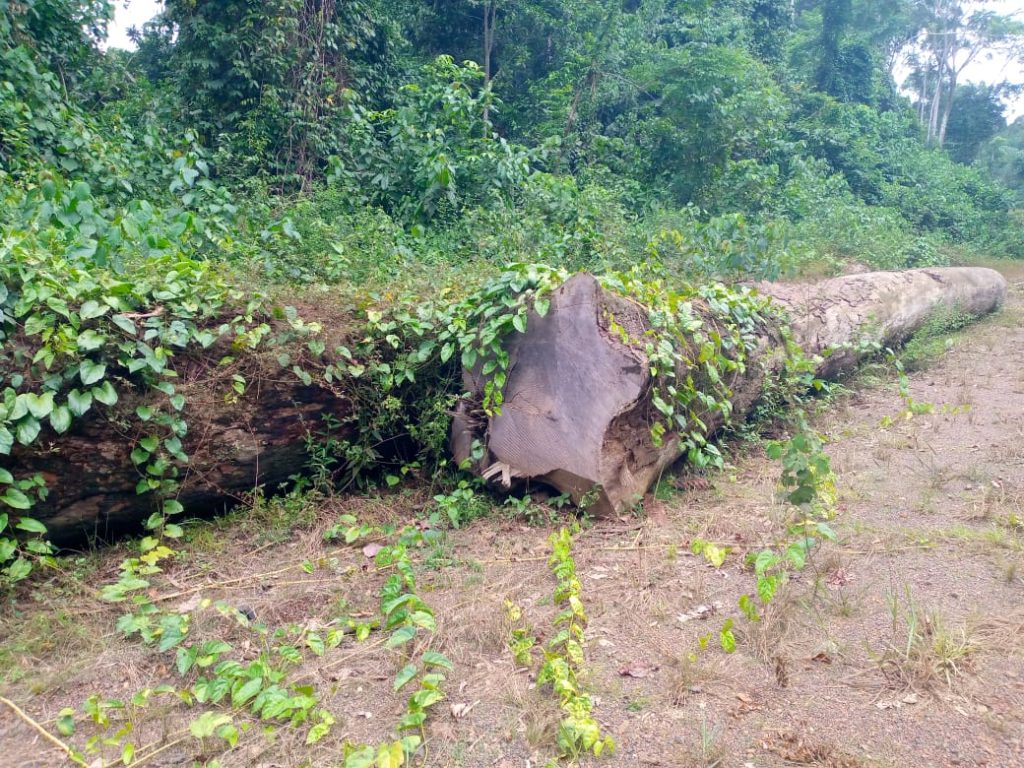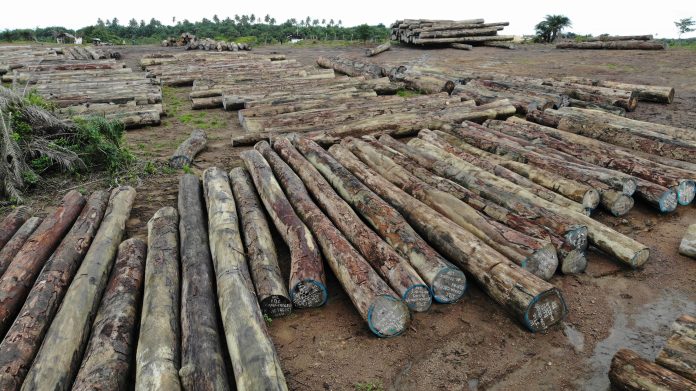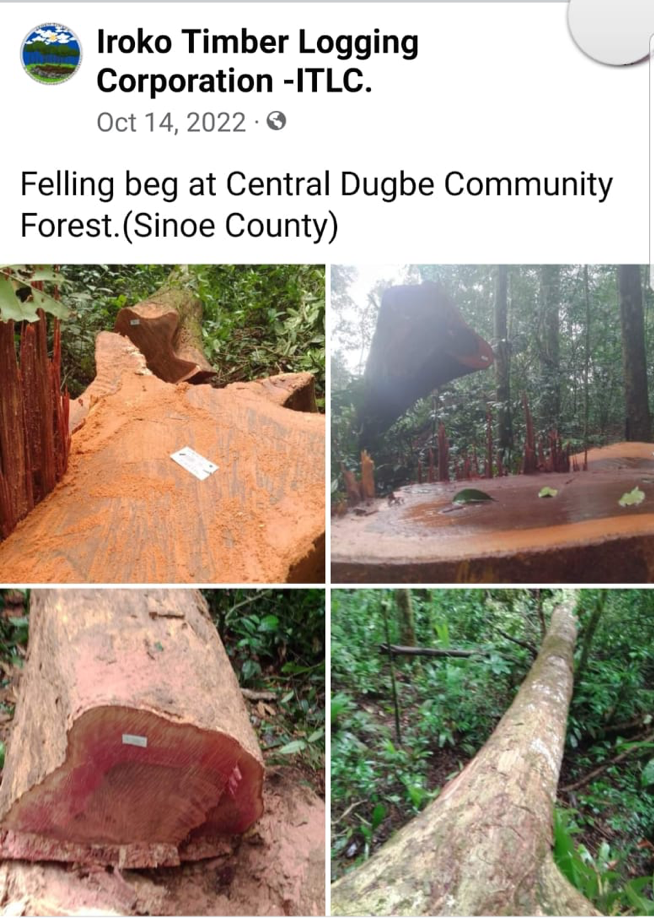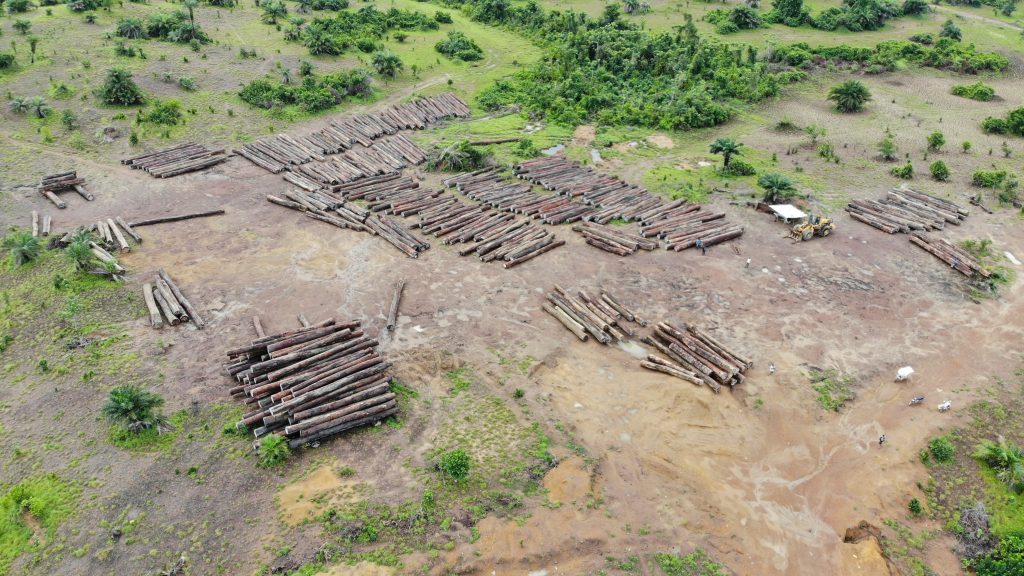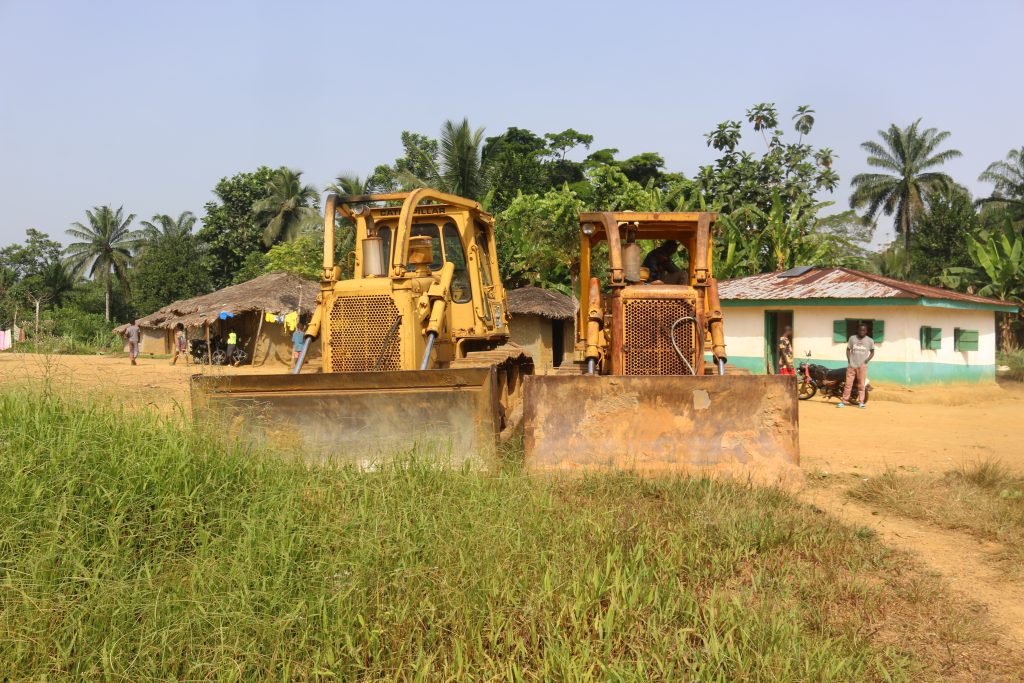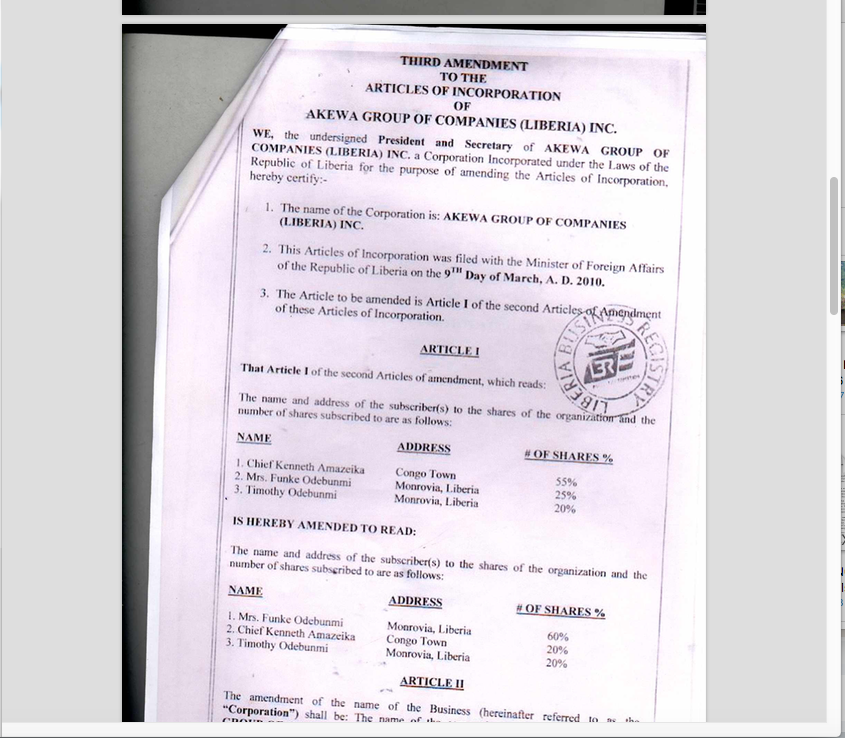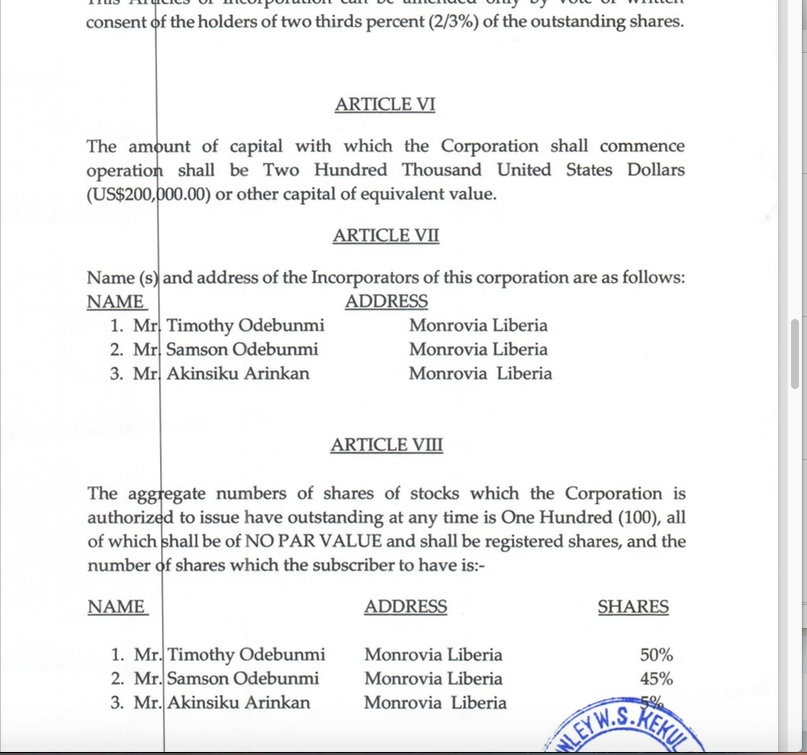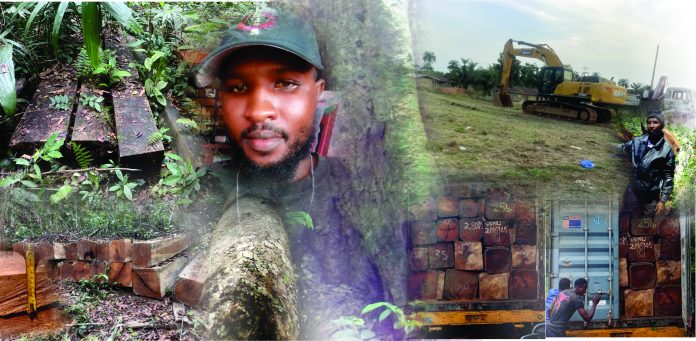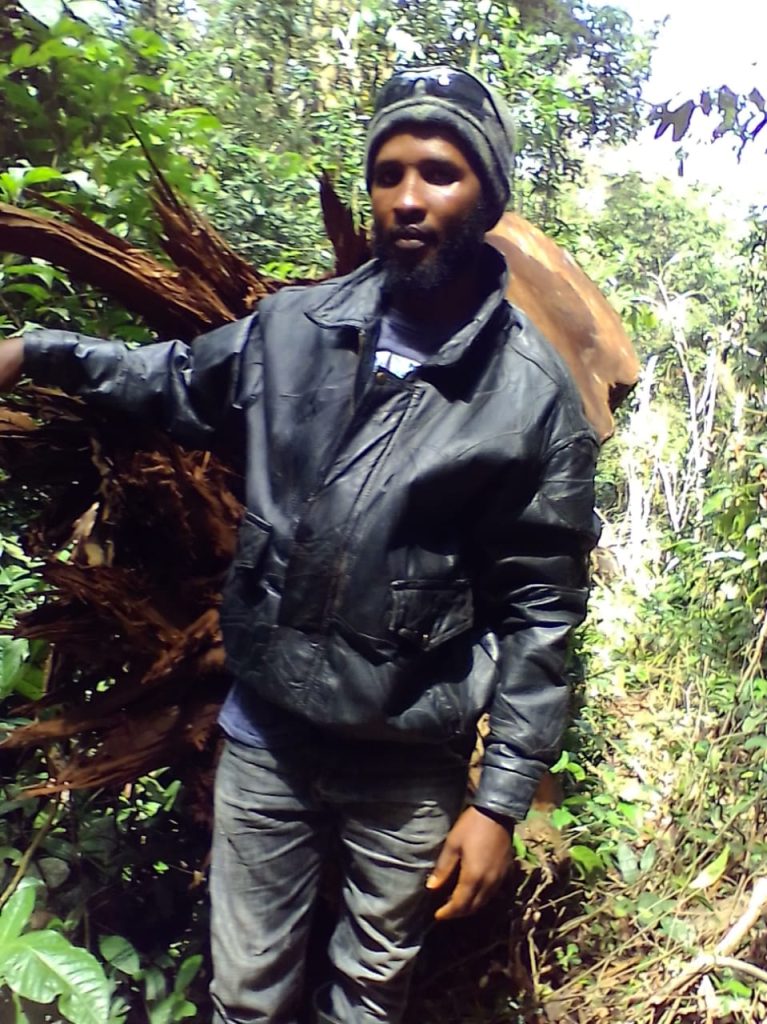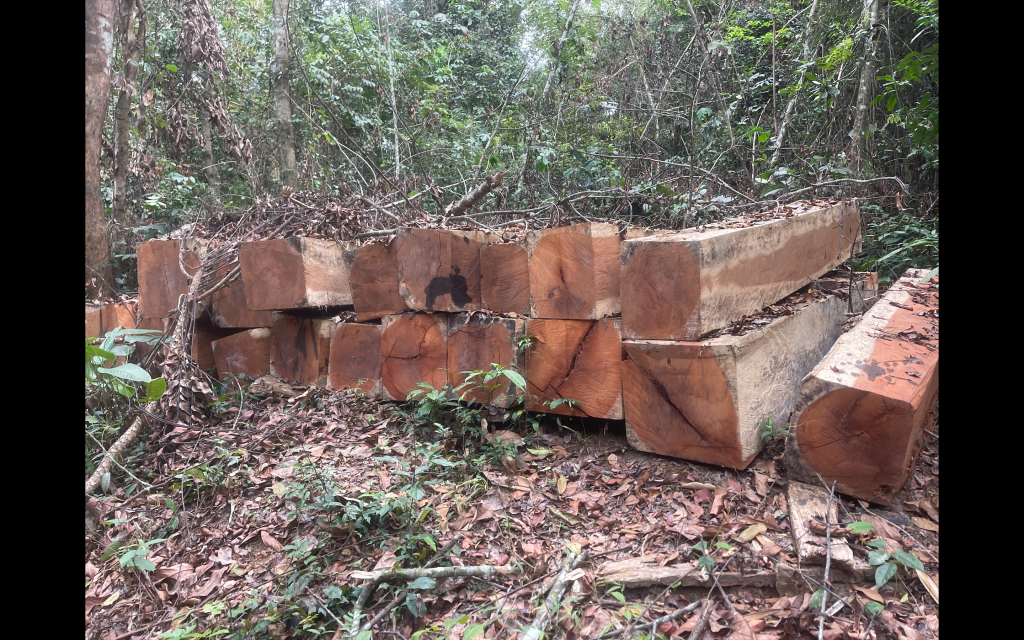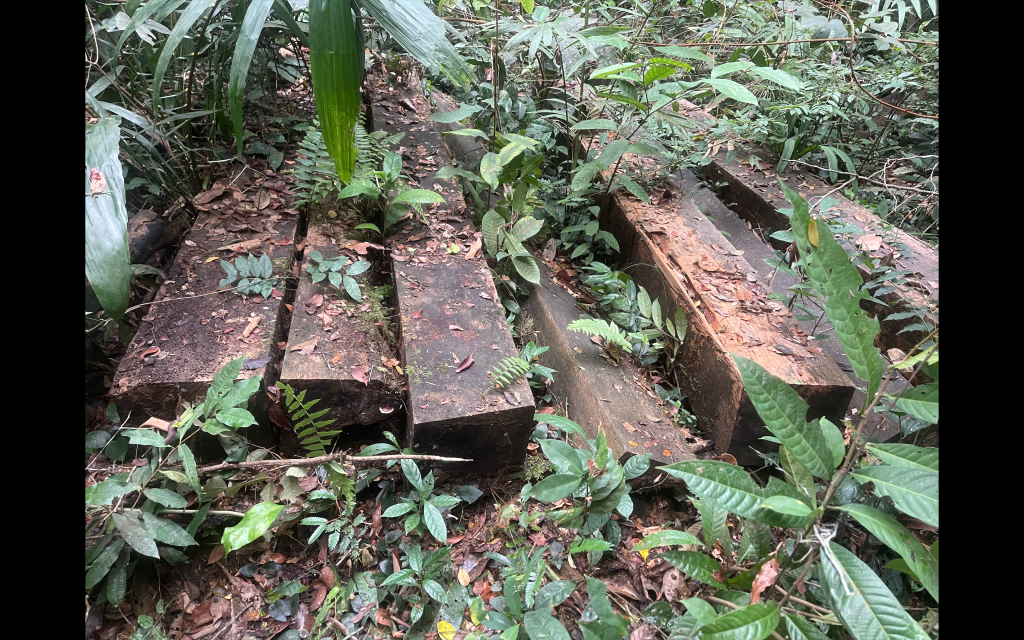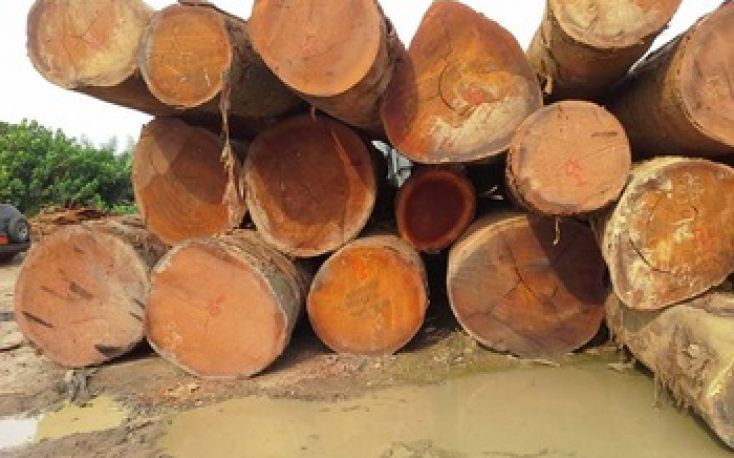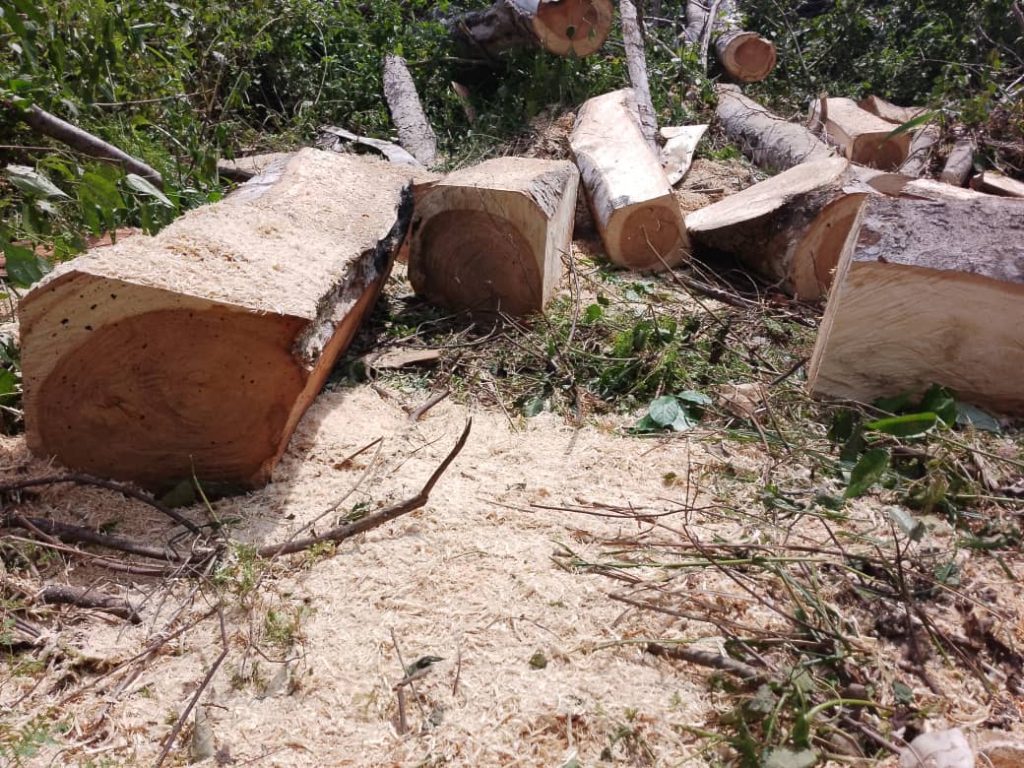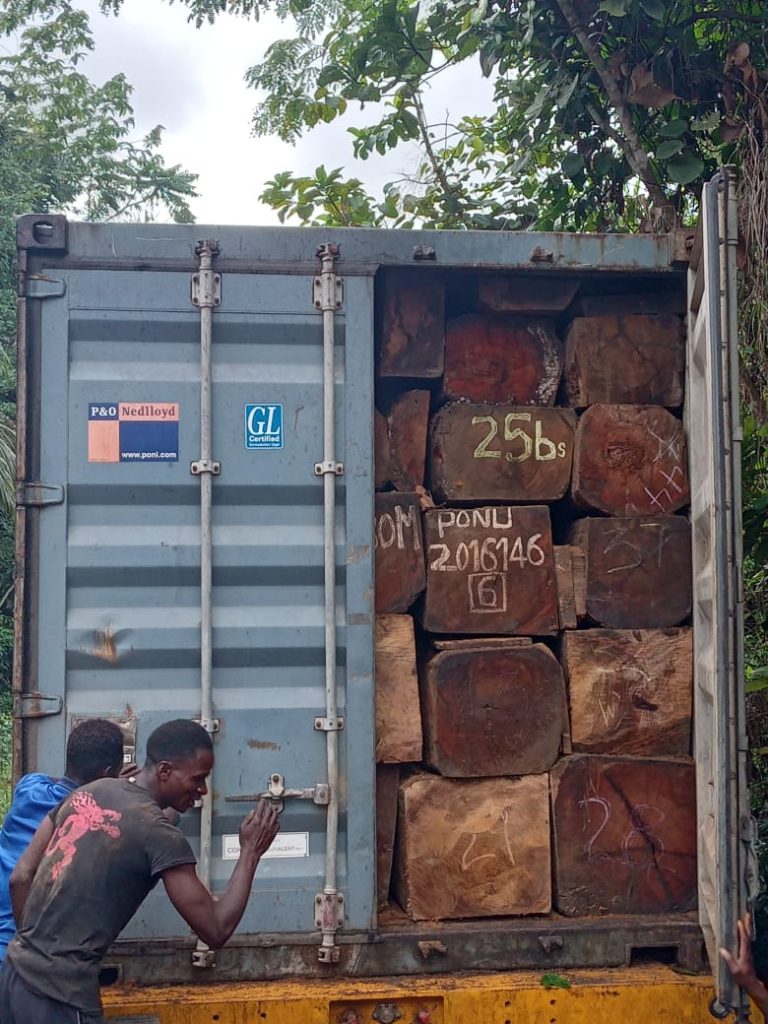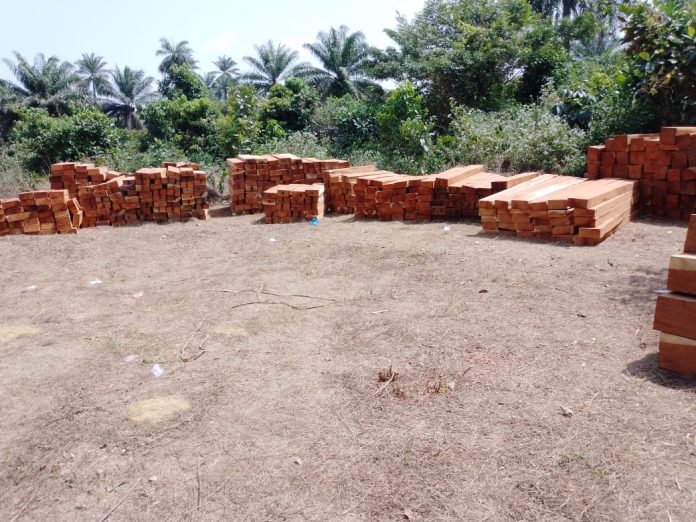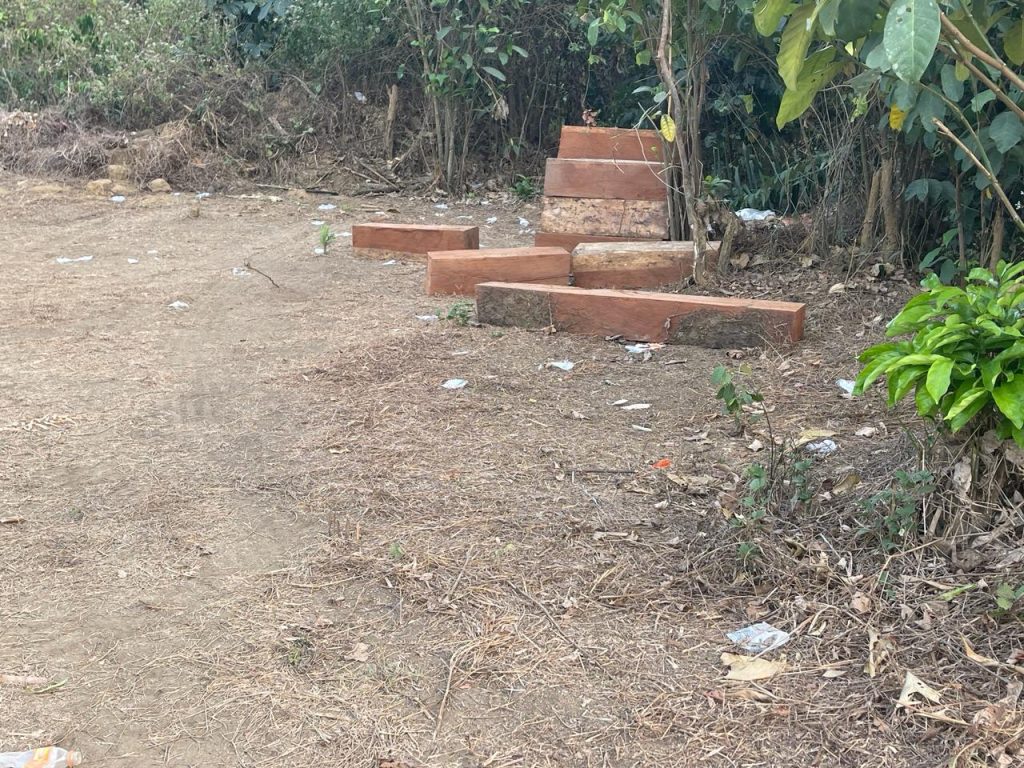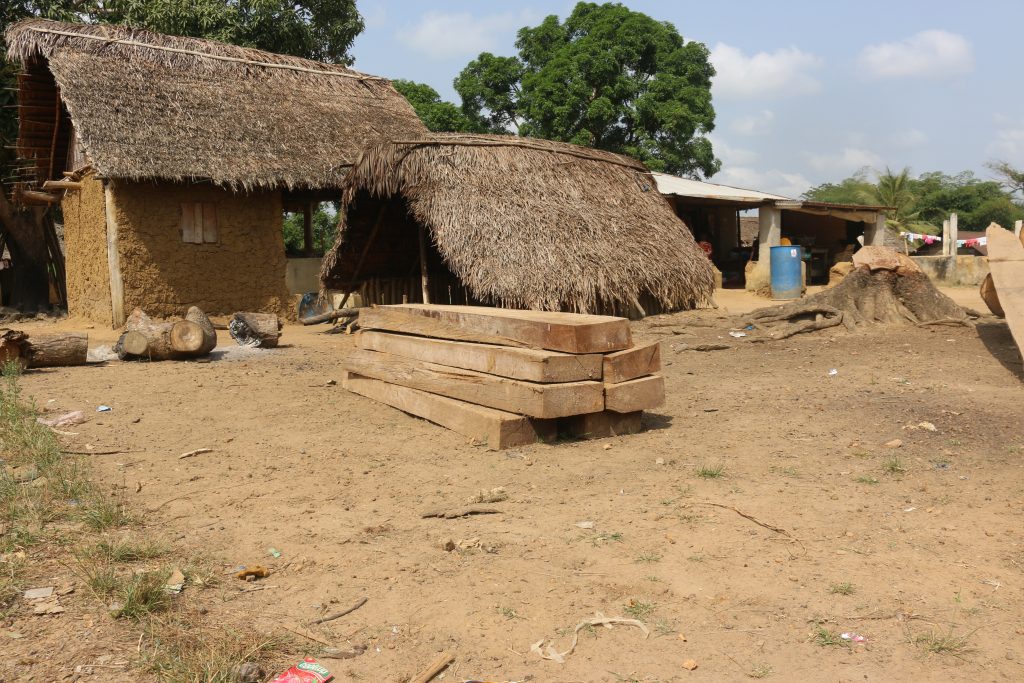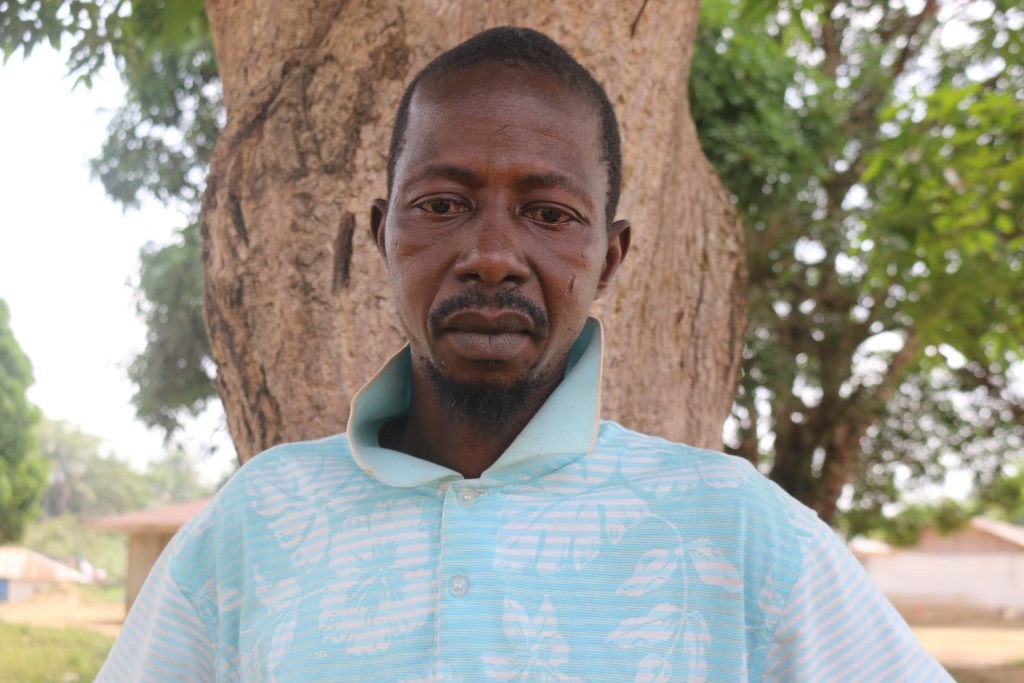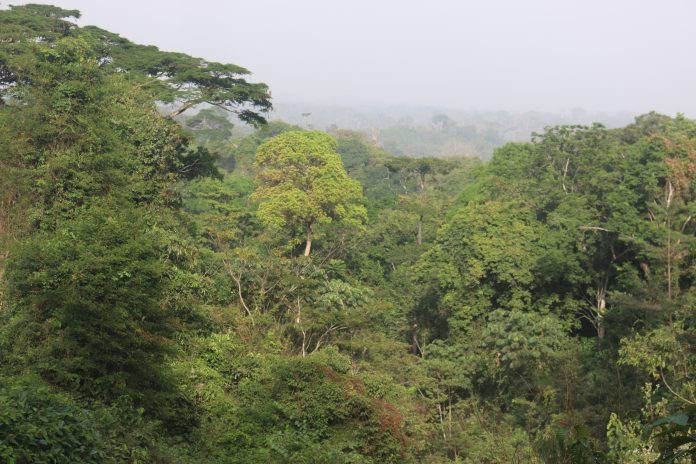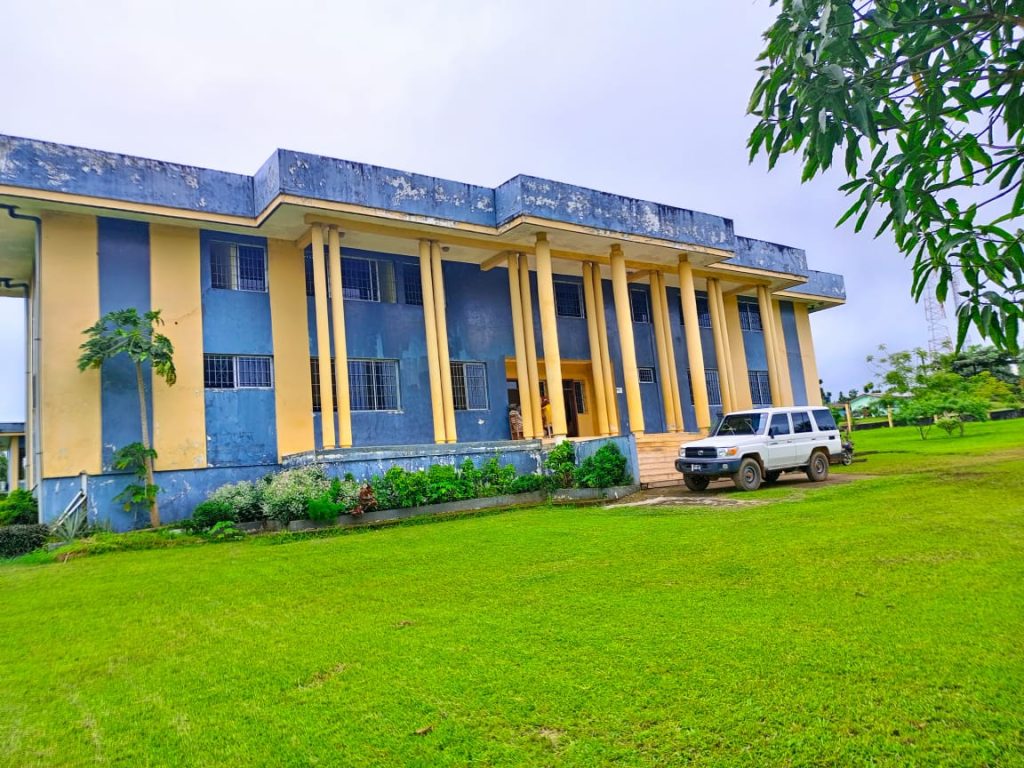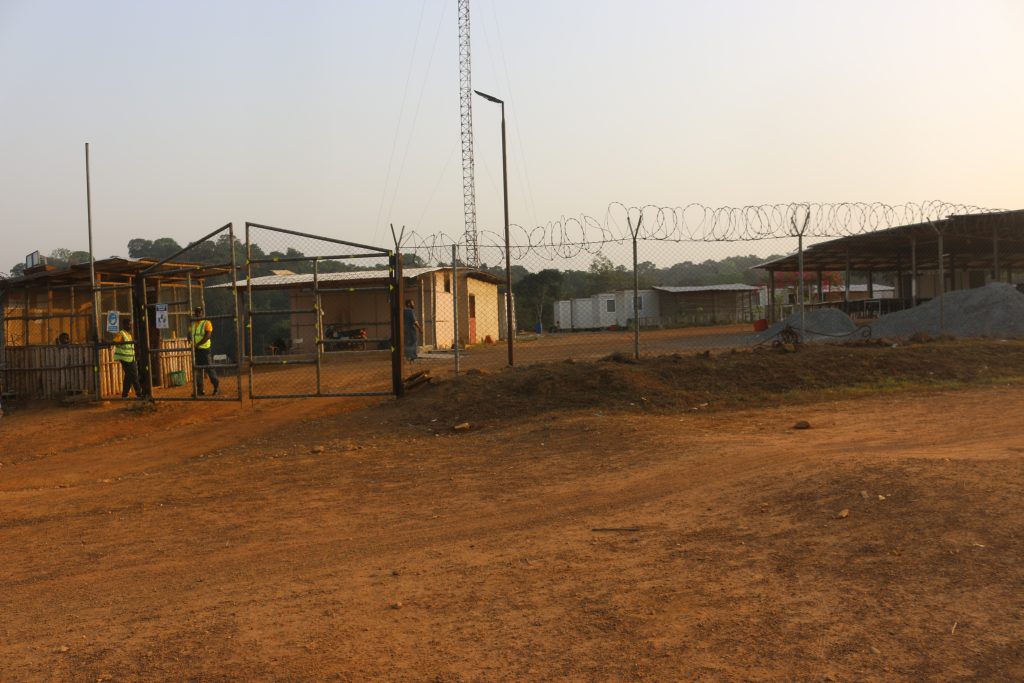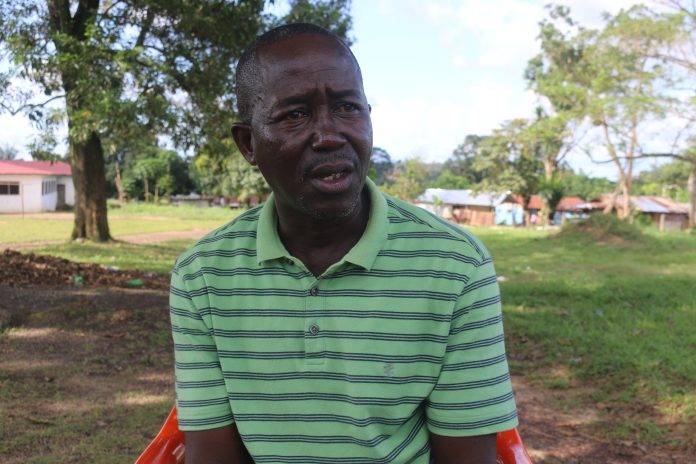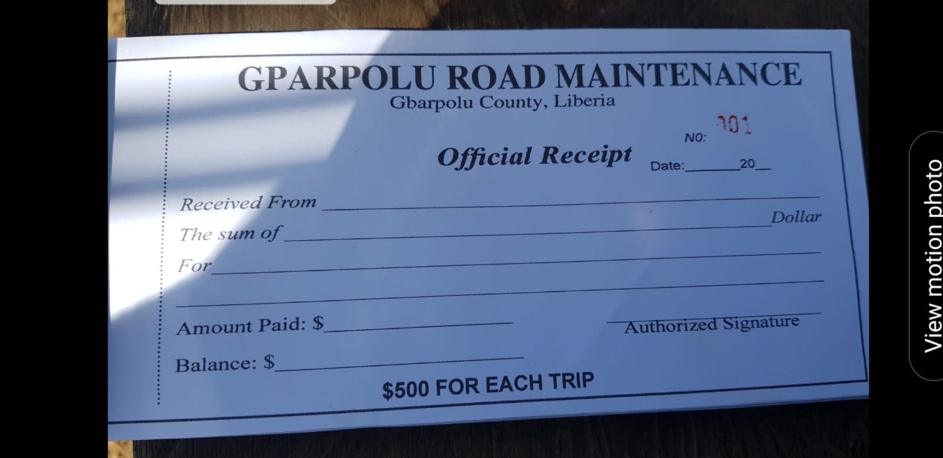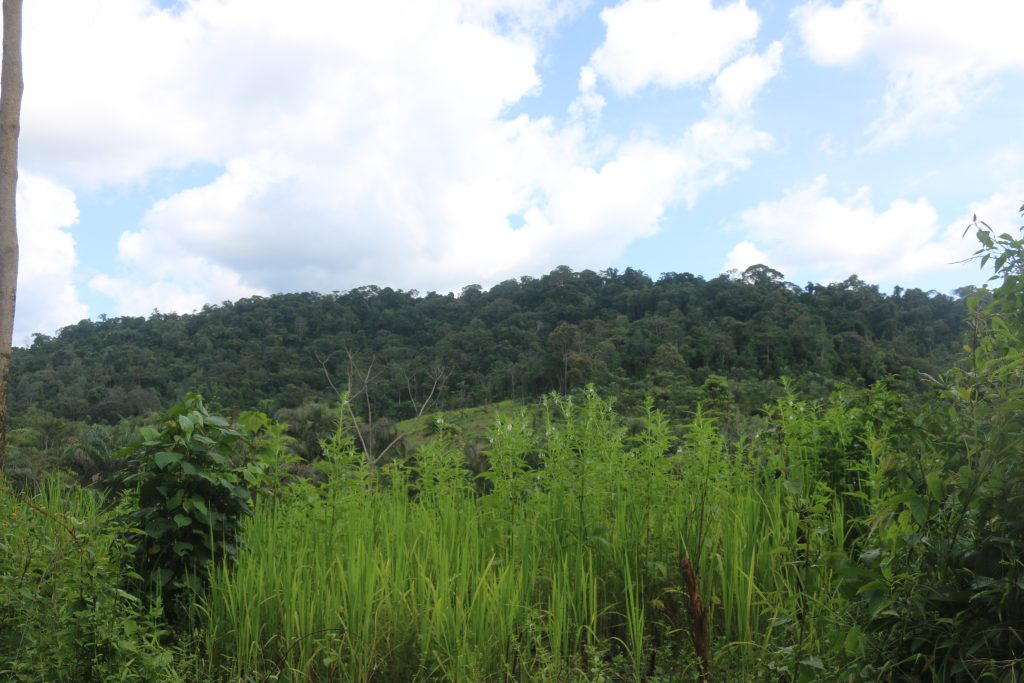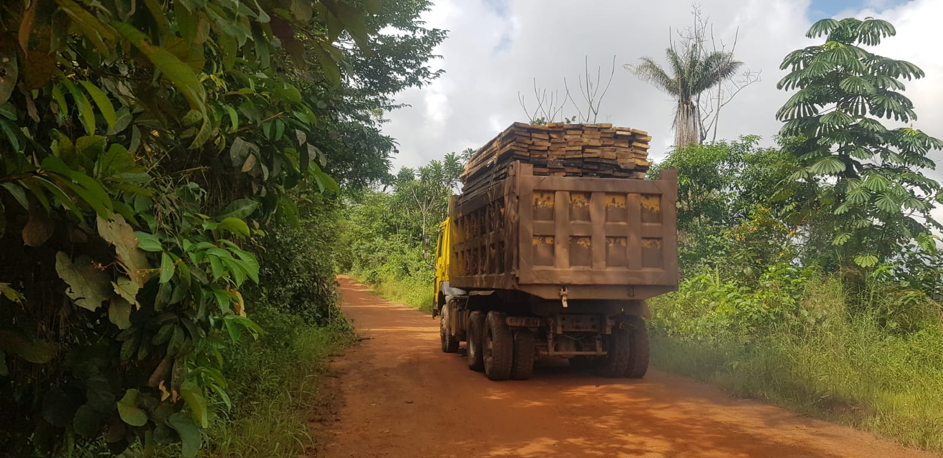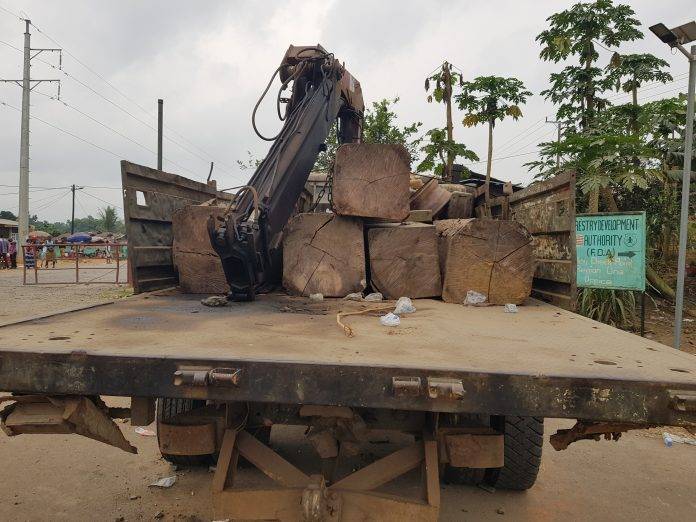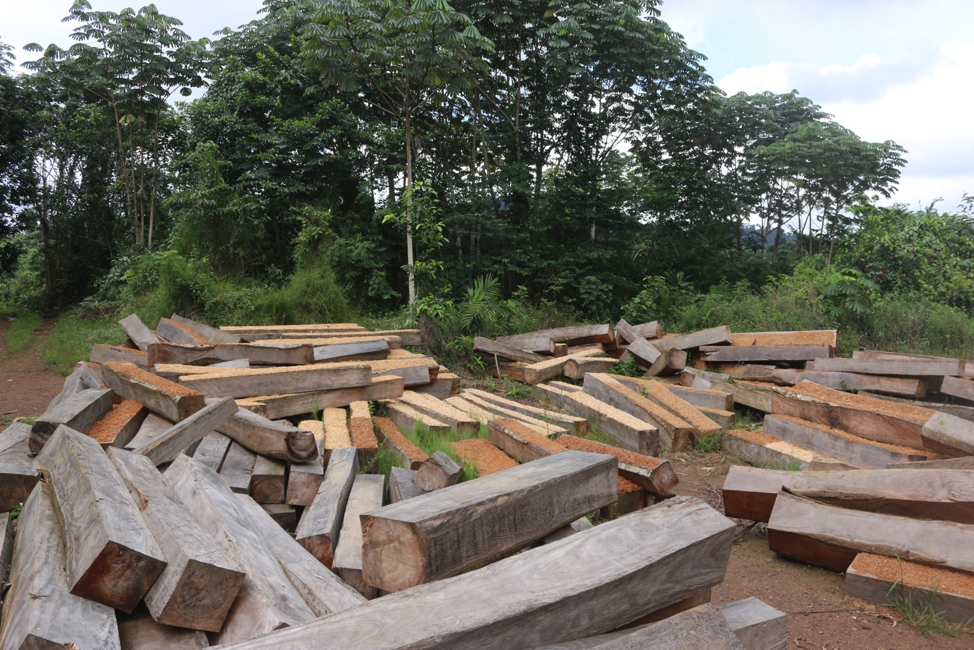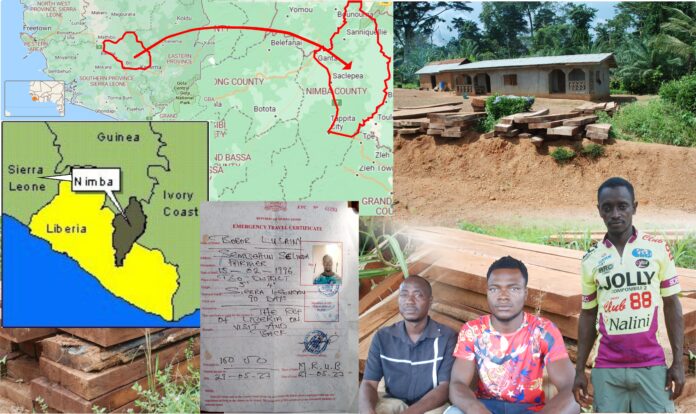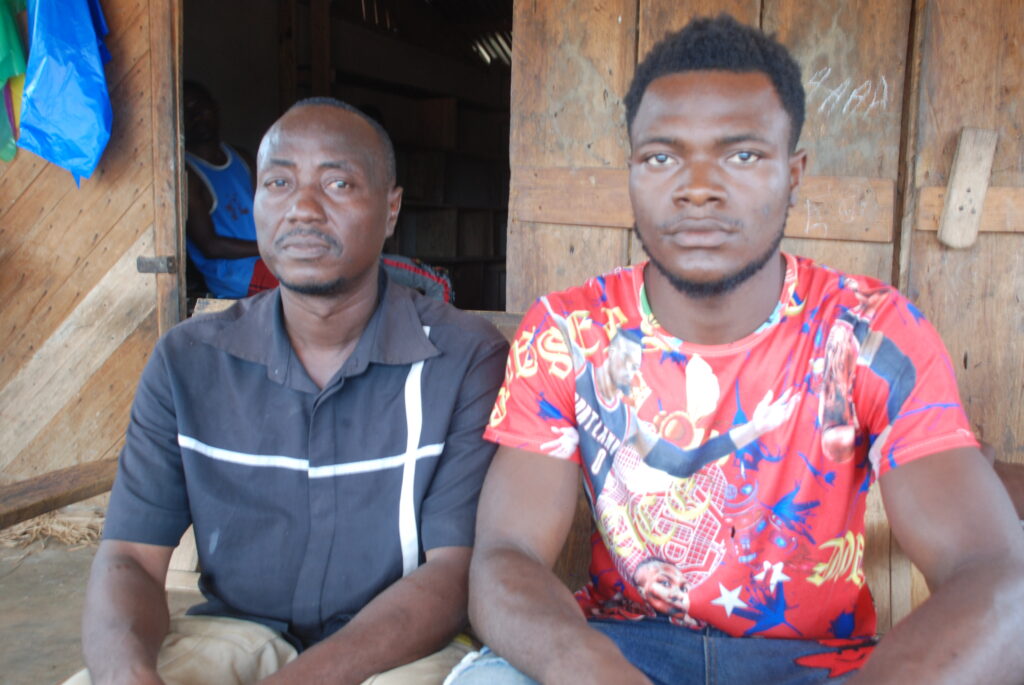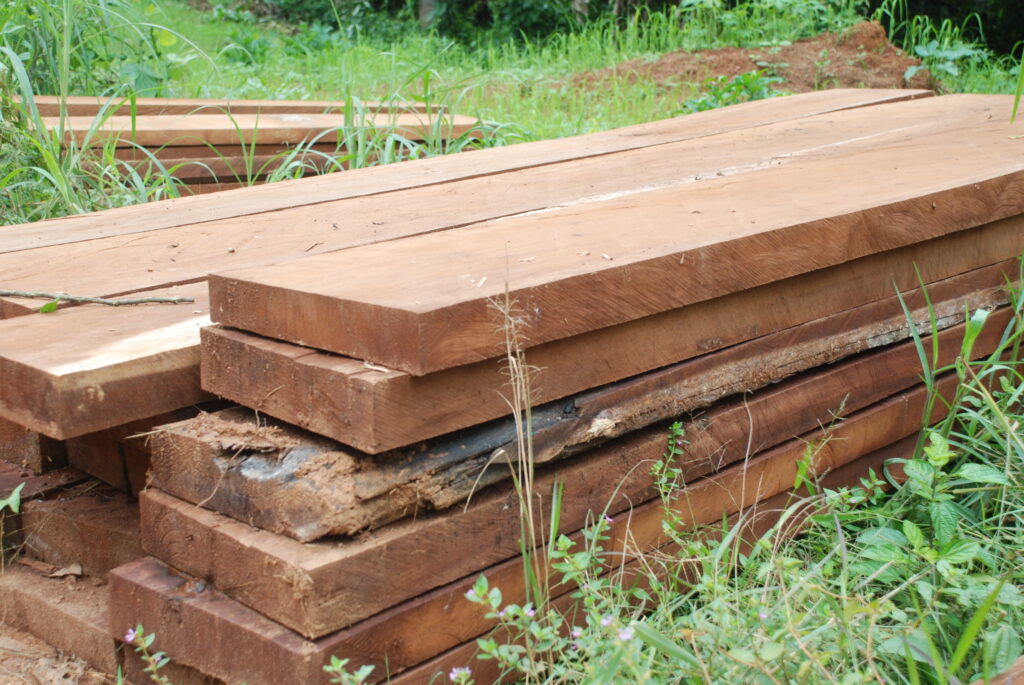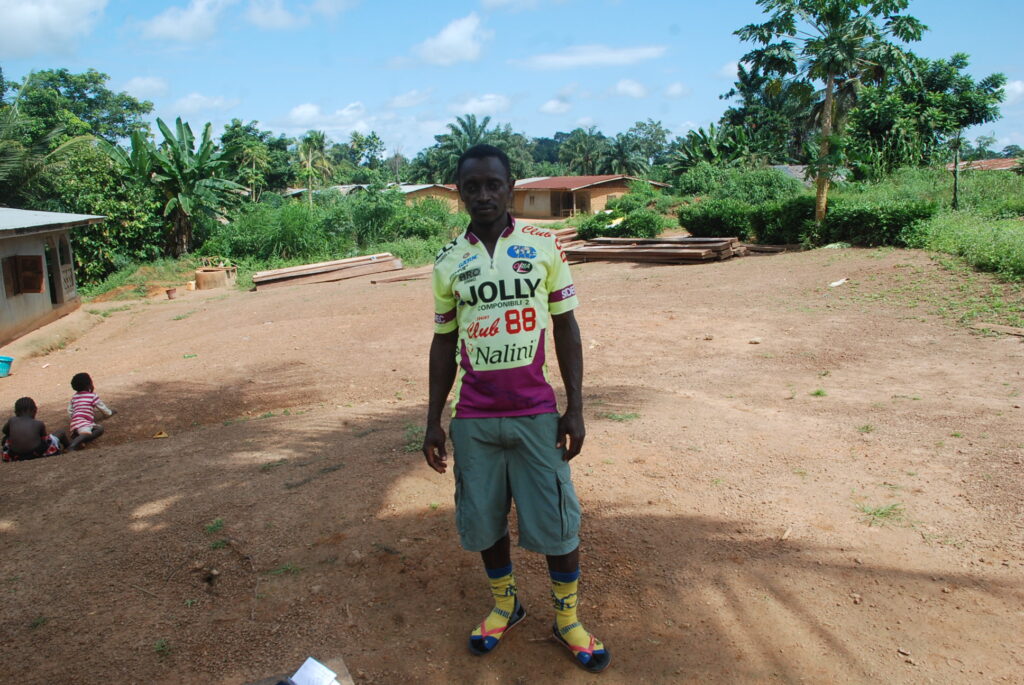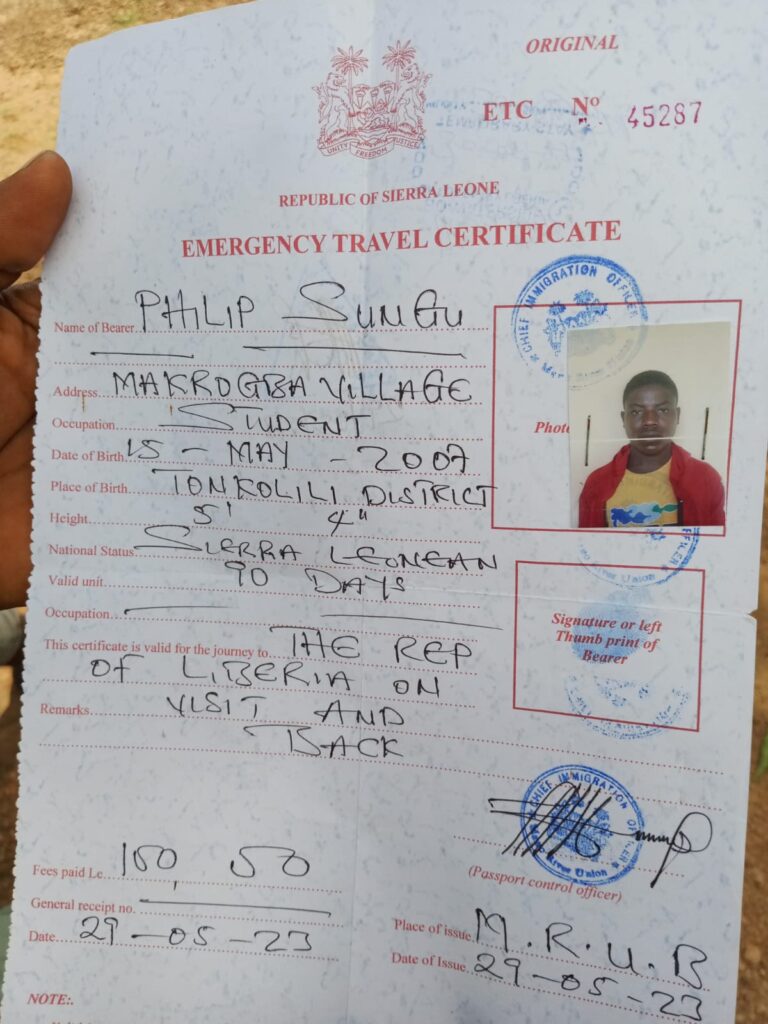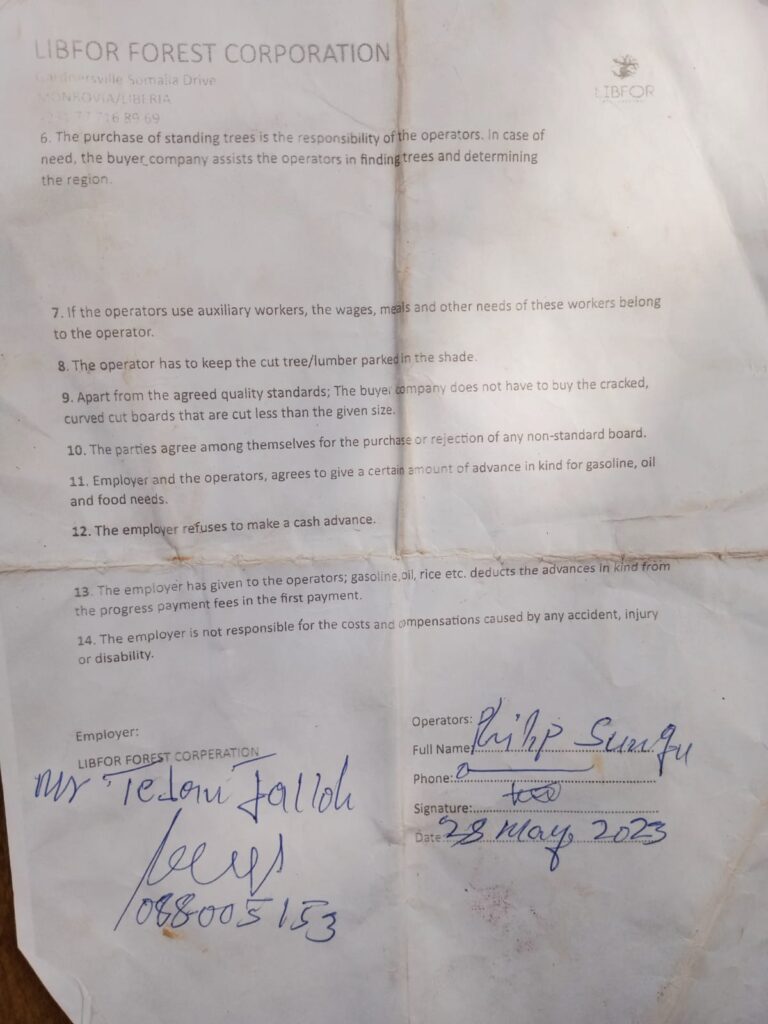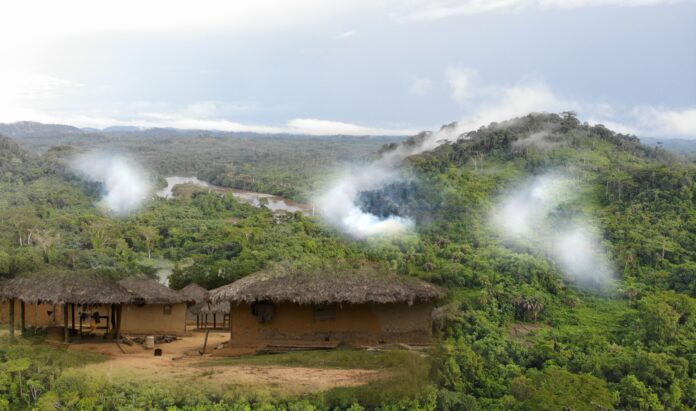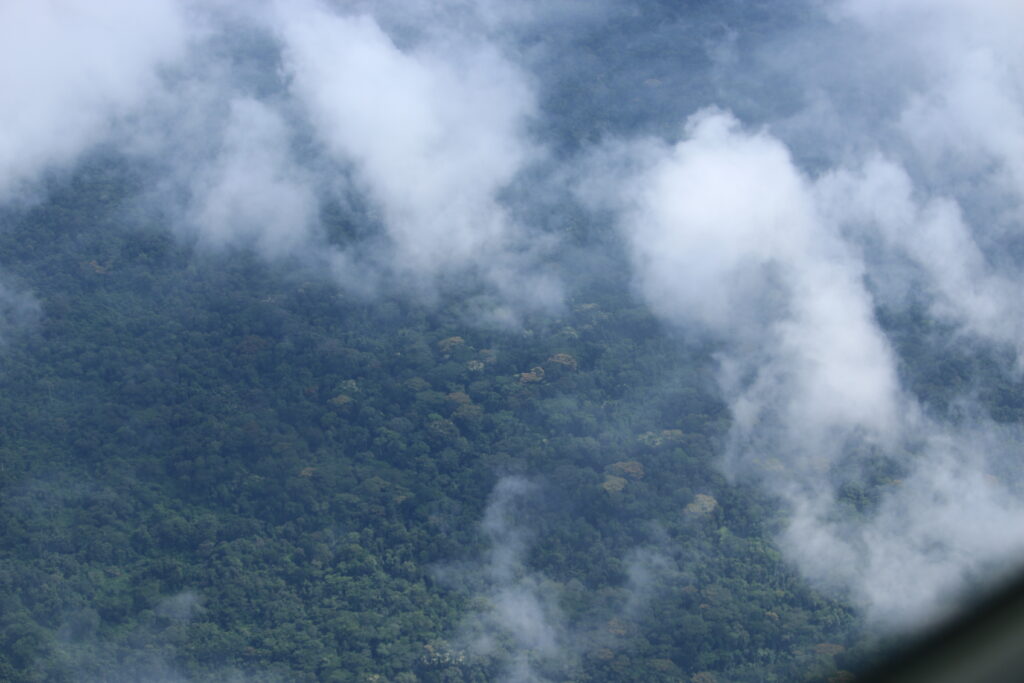Top: Logs appear undersized and spread out, with an earthmover in the background. The DayLight/Ojuku Kangar
By Emmanuel Sherman
Editor’s Note: This is the third part of a series on the illegalities of a new community forest in Grand Bassa County.
VAMBO, Grand Bassa County – Early last month, The DayLight started a series on a newly established community forest, documenting a string of illegalities involving the Forestry Development Authority (FDA) and a logging company.
So far, the series has published evidence that the FDA illegally established the Mavasagueh Community Forest in Compound Number Two, Grand Bassa County. The agency approved Mavasagueh’s logging contract with the C&C Corporation (CCC), owned by an ineligible logger, Clarence Massaquoi, who also, manages an illegitimate sawmill in Buchanan.
The DayLight has, however, gathered additional evidence of the FDA’s breach of forestry’s legal provisions, cementing initial findings of the regulator’s wrongdoings.
‘Embarrassing’
Twenty-four out of 39 or nearly 40 percent of the communities that own Mavasagueh participated in an environmental and social impact assessment conducted on the community forest, according to a report. The study, which took place between October and November last year, after the FDA awarded Mavasagueh a community forest status, shows the signatures of representatives of the participating towns.
A legal requirement for logging contracts, the report clearly shows that 15 towns and villages were left out of the process, including Gblorso Town and others in the Vambo Township, which hosts a large portion of forest in that area.
This evidence confirms a previous finding that many communities did not participate in Mavasagueh’s formation. Townspeople alleged that ex-Vambo Commissioner Daniel Dayougar handpicked members of Mavasagueh’s leadership, with some unaware of their roles. Dayougar, who was involved with another bogus deal in 2020, denies the allegation.
Civil society organizations flagged those issues when they reviewed Mavasagueh’s documents last year. They asked that the FDA ensure people participate in the boundary process. Residents The DayLight interviewed corroborated the findings.
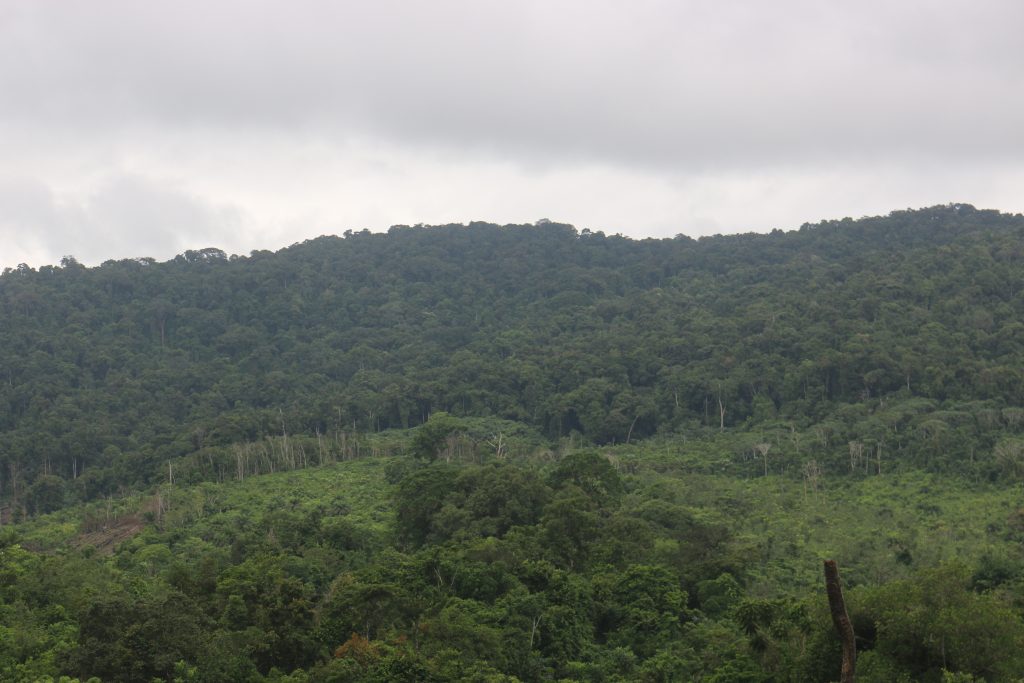
The new evidence shows the forest’s original name, Vambo-Marloi, was changed to Mavasagueh, a play on Marloi, Vambo, Gorzoah and Sawbein. Like Vambo, Marloi is a township, while Gorzoah and Sawbein are clans.
The name Mavasagueh remains an issue, though.
“The combined name is embarrassing to every one of us,” said Nathaniel Clarke, Commissioner of Vambo Township. “We were not combined with any other forest.
The FDA did not answer why Vambo-Marloi, the name recorded in last year’s forestry sector review, was changed to Mavasagueh. The regulator did not respond to the newspaper’s questions, for this story or previous parts of this series.
A 2018 letter
The first part of this series established that the FDA ignored a claim laid by Khalil Haider, a resident of Monrovia, to 3,200 acres of land between the St. John River and Mt. Findley, which overlaps Mavasagueh’s 26,003 hectares. A Google Earth map of the area Haider’s claim falls within in the first compartment CCC intends to operate.
Then a second person Amos Lewis, a resident of Marshall, Margibi, is also claiming the same plot as Haider. Like Haider, Lewis has informed the FDA about his claim. Both men have presented a Tubman-era deed to substantiate their claim.
Lewis and Haider’s claims are sufficient for the FDA to call off the contract between Mavasagueh. The community forest handbook requires the FDA to investigate and potentially slice the problematic plot from the community forest. The claims prove that the demarcation and mapping of Mavasagueh was not participatory.
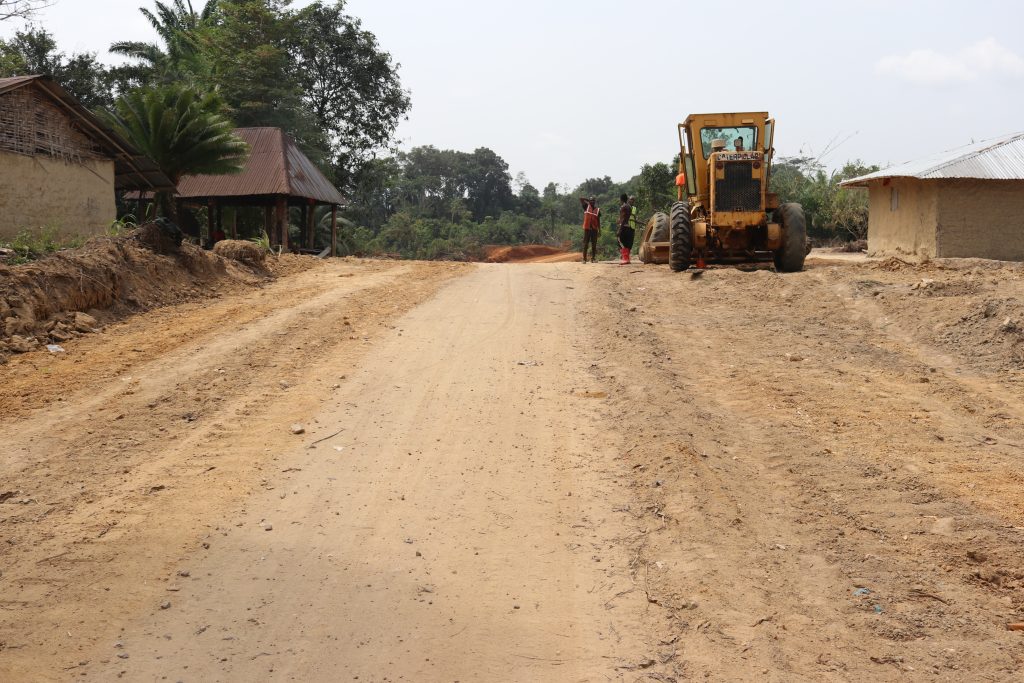
The compromise has several implications, according to forestry experts. First, CCC has more forest blocks to cut in a season, as the size of the forest determines the number of blocks. Second CCC can harvest at a faster rate—even, if the company does not cut logs in the area Haider is claiming, since the forest contains the supposedly private plot. Third, Mavasagueh overlaps a private plot, contradicting a community forest’s description: a forest on a community or customary land.
But that is not all. One of the new pieces of evidence is a letter Haider wrote to the FDA in 2018, informing it about his claim to the 3,200 acres.
The letter, obtained by The DayLight, read, “We are getting ready to do some farming projects on our land. But because of the road condition and bridges, we are asking your authority to allow us to market the existing marketable species, which will enable us to generate some funds.” Haider claimed he wrote several other letters to the FDA over the years.
Haider’s letters prove one of two things: First, the FDA ignored his communication. Or the regulator lost it, leading him to write the agency again last year. Notably, this appears to confirm a flawed process, and a finding from last year’s forestry concession review that the FDA did not keep proper records.
An illegal compromise
FDA has sanctioned CCC’s operations despite the mounting illegalities associated with the Mavasagueh-CCC contract.
Photographs and videos shot by The DayLight show apparent undersized logs CCC harvested. The woods are visible in the video spread out in an open field.
Last week the Mavasagueh-CCC contract was read to residents. Though signed in August last year, it was the first time, the townspeople had seen or read the document.
Managing Director Rudolph Merab encouraged CCC and Haider to compromise to avoid the FDA from repeating the process, according to Haider, one of the private land claimants and CCC’s owner Massaquoi.
“I received a call from [Mr. Merab], stating that if I pursued it further, they would have to cancel everything until two to three years before anything,” Haider told The DayLight in January. He added he empathized with Massaquoi because CCC spent a lot of money paving over 15 kilometers of a major road in the community.
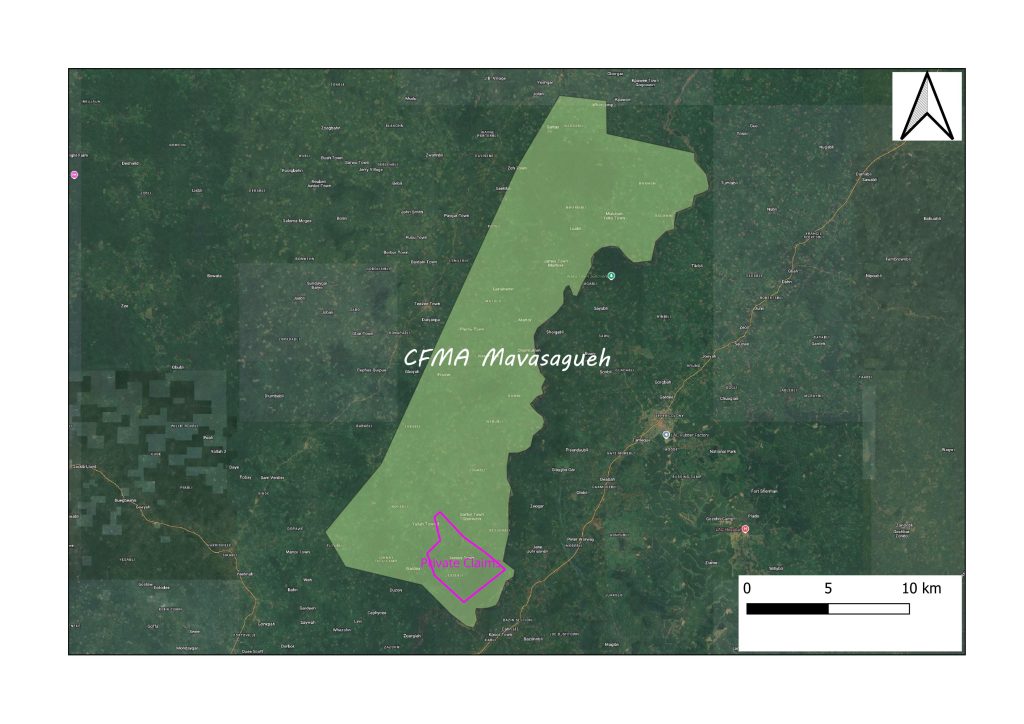
“Haider and I settled, and he would work with the community and me so, the FDA should let the document be processed,” Massaquoi told a DayLight interview.
Massaquoi, who conducted a failed logging operation in Grand Cape Mount in the 2010s, covering just 5,000 hectares, is confident of success this time around. He intends to sell logs to Krish Veneer Industries, an illegitimate sawmill in Buchanan he manages. A DayLight investigation found that the Indian-owned Krish is not a corporation, a legal requirement for forestry companies.
As organized as the plan seems, it is not backed by law.
Per the community forest handbook—based on the law—the FDA must “review objections, contact and meet with objectors, and use customary dispute resolution mechanism.” It further requires the FDA to work with the Ministry of Mines and Energy, and the Land Authority to establish a community forest area.
“If required, the FDA and [the] community repeat the demarcation process…”

